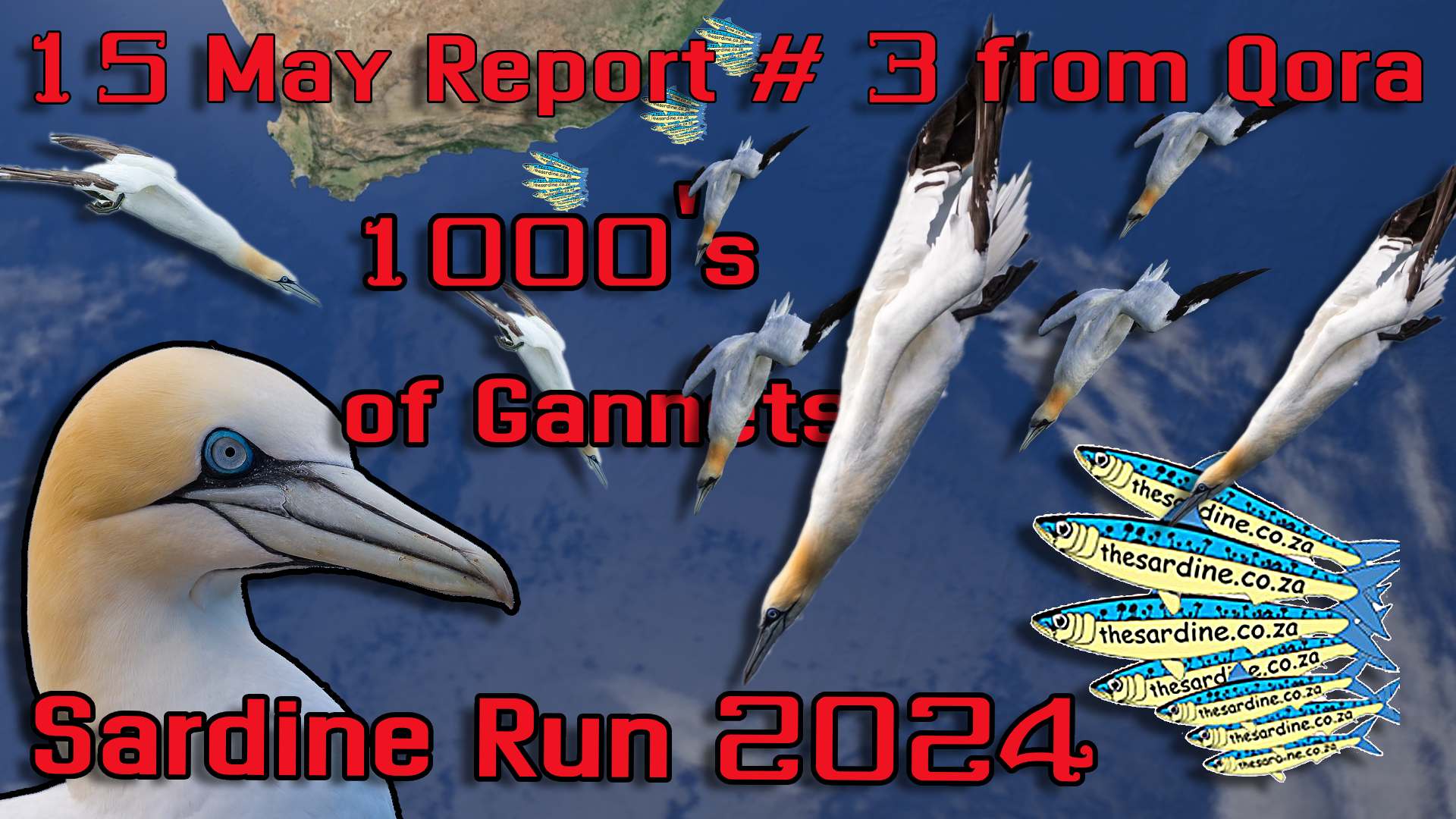1000s of Cape Gannets dive-bombing in Qora, Deep Transkei
1000s of Cape Gannets dive-bombing in Qora, Deep Transkei 1000s of Cape Gannets dive-bombing in Qora, Deep Transkei: the iconic and beautifully choreographed gannet population descends on the sardine run first. Every time. These are our main indicators. That along with the cetaceans, sharks, fish and other marine mega-fauna, make up all the predators that … Read more

